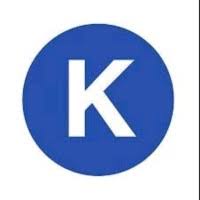
An interest in athletics, exercise, or sports can lead to a variety of different careers within the sports and exercise industries. You might choose to pursue a career in coaching at the high school, college, or even professional level. Other career options include fitness trainers, recreation workers, physical education instructors, physical therapists, sports medicine, human kinetics, sports nutritionists, and even sport psychologists. Explore your many options as you choose a career in the sports or exercise industry.
The foundation for many of these sports and exercise careers is the study of kinesiology. Kinesiology encompasses the study of physical activity and how it affects health and the quality of life. A student studying kinesiology can prepare to enter careers such as coaching, fitness training, physical education instruction, sports medicine, physical therapy, corporate fitness instruction, and sports management. Even without a degree in kinesiology, it’s possible to pursue careers in the sports and exercise fields, however. For example, it’s possible to enroll in a fitness trainer certification program to become a certified fitness trainer, working with clients privately or in fitness centers.
The field of physical therapy offers many different opportunities as well. Physical therapists have the ability to partner with patients as they work to improve health or increase mobility. Physical therapists may utilize exercise machines in a clinical setting during therapy sessions with patients. Physical therapists can also help patients avoid conventional treatments such as pain medication and surgery by utilizing other therapeutic options such as therapy with exercise machines.
Sports medicine is a broad field of study that involves a medical practice specializing in preventing, diagnosing, and treating athletic injuries. A physician specializing in sports medicine could work as a team doctor on a college or professional sports team. Olympic or professional athletes also need physicians specializing in sports medicine. Exercise science is connected with the practice of sports medicine because exercise science involves understanding physical movement and how the human body responds and adapts to it.
Explore the following resources with information about various careers in the realm of physical education and fitness:
Explore Career Options
Exercise science professionals know they have a great responsibility to ensure the safety and health of patients and clients at all ages and skills levels in whatever fields they specialize in. We’ve outlined at least
According to the U.S. Bureau of Labor Statistics, careers related to the field of exercise science are growing. Here are some examples from the Occupational Outlook Handbook:
Fitness trainers and instructors: Employment is projected to grow 10% through 2026, faster than the average for all occupations. As businesses, government, and insurance organizations continue to recognize the benefits of health and fitness programs for their employees, incentives to join gyms or other types of health clubs are expected to increase the need for fitness trainers and instructors.
- Job prospects are best for workers with professional certification or increased levels of formal education in health or fitness
Coaches and scouts: Employment is expected to grow 13% through 2026, faster than average for all occupations. An increasing emphasis in high school and college sports will require more knowledgable coaches in areas of fitness, strength, performance and nutrition. Even scouts for college or professional sports teams will need to have basic understanding of fitness and agility.
- Typical entry-level education for a coach or scout is a bachelor’s degree, however specialized master’s degree in exercise science can help lead to specialized coaching duties at higher levels of compeition.
Recreational therapist: A recreational therapist help to plan exercise and movement-based therapy programs for people with disabilities, injuries or illness. Employment in this field is expected to grow 7% through 2026, which is as fast as the average job growth.
- A master’s degree in this field can lead to significant increases in page range.
Exercise Phsyiologists: Employment in this field is expected to grow 13% through 2026, faster than most careers in the United States. If you enjoy developing fitness plans that help patients recover from chronic disease, this is the field for you.
- A master’s degree program helps exercise phsyiologists advance in their careers and give a competitive advantage in the field.
What kind of jobs can you get with an exercise science degree?
Here’s a checklist of potential career pathways (NOTE: Some of these career pathways may require additional education):
- Activity Specialist
- Aerobics Instructor
- Anatomist
- Athletic Director
- Athletic Scout
- Athletic Therapist
- Camp Director
- Cardiac Rehabilitation Specialist
- Community Program Director
- Entrepreneur
- Ergonomist
- Exercise Physiologist
- Fitness Coach
- Fitness Consultant
- Gym Manager
- Healthcare Aide
- Health Care Consultant
- Health Educator
- Kinesiologist
- Massage Therapist
- Military Officer
- Orthopaedic Technician
- Osteopathic Physician
- Personal Trainer
- Physiologist
- Physiotherapist
- Recreation and Leisure Supervisor
- Recreation and Sports Director
- Recreation Therapist
- Registered Nurse
- Research Assistant
- Retail Sales Associate
- Spa Manager
- Sporting Goods Sales Rep
- Sports Agent
- Sports Coach
- Sports Facility Manager
- Sports Medicine Physician
- Sports Nutritionist
- Strength and Conditioning Coach
- University Professor
- Wellness Coordinator






